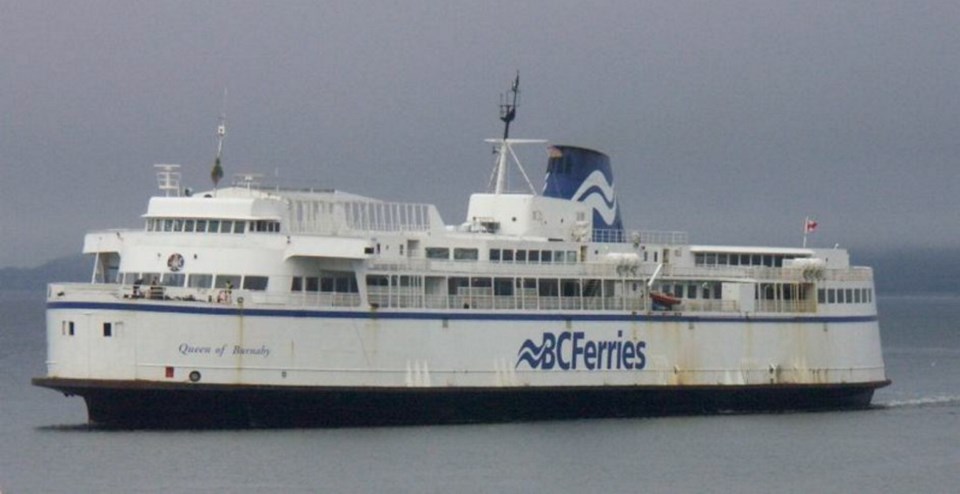One B.C. company has made the shortlist to potentially build three new ships for B.C. Ferries.
Vancouver-based Seaspan Shipyards was shortlisted with companies from Norway, Germany, Poland and Turkey to bid on constructing the three ferries.
The ships are to be dual-powered by diesel and liquefied natural gas, and cost between $200 million and $300 million, said Mark Wilson, B.C. Ferries’ vice-president of engineering.
They are intermediate class vessels, carrying as many as 145 vehicles and 600 passengers.
B.C. Ferries doesn’t expect to sign the construction contract until spring 2014, but is already facing criticism for shortlisting only one Canadian company, as well as pressure to keep the work within the province.
“B.C. Ferries should be ashamed of themselves,” said George MacPherson, president of the Shipyard General Workers’ Federation. It appears the ferry corporation is poised to take the work offshore, he said.
B.C. has enough trained shipyard workers and it has the capability to build the ferries, MacPherson said.
If B.C. won the job, it would create approximately 450 jobs and generate $350 million in economic spinoffs, he said.
MacPherson questioned whether Seaspan would ultimately even bid on the work because it is already lining up contracts worth $11.3 billion to build non-combat federal ships starting next year and running for possibly two decades.
“They may surprise me and put it in. If they do, that’s great. But I don’t believe they will.”
Seaspan, which owns Victoria Shipyards in Esquimalt, said in a statement that it is “excited to explore next steps in this open, active procurement process, but we are not at liberty to discuss any further details at this point as it would put us at a disadvantage.”
B.C. Ferries was criticized for building three Super-C class ferries in Germany in 2008 for $542 million. It cited lower cost and price guarantees as one of the reasons for going to Germany.
The quasi-private ferry company faced $119.4 million in customs duties for offshore construction, but successfully sought a waiver from the federal government.
It’s possible B.C. Ferries might again face duty charges if it chooses to go overseas, said Wilson. “If duty is applicable that will be a factor in the final pricing and the final decision.”
Opposition NDP critic Maurine Karagianis called on the provincial government, which pays almost $180 million a year in subsidies to B.C. Ferries, to institute some sort of made-in-B.C. criteria to help Seaspan.
“I think most British Columbians think it’s logical to build our ferries here,” said Karagianis.
There are huge spinoff benefits to the economy and shipbuilding industry if the work stays local, as well as social and environmental benefits, said Karagianis.
However, the provincial government solely focusing on B.C. shipyards also led to so-called “fast ferries” scandal of the 1990s, when a then-NDP government built three large ferries in B.C. for $454 million, only to find they weren’t suitable for local waters.
The ferries were later sold for $19.8 million.
Transportation Minister Todd Stone refused an interview Monday and instead issued a statement that said “we must strike a balance between creating jobs in B.C. and getting the best value for taxpayers.”
The new ferries will run on the Comox-Powell River, Tsawwasssen-Southern Gulf Islands and Southern Gulf Islands routes.
B.C. Ferries said using LNG as fuel could cut the company’s $121-million annual fuel costs in half and reduce carbon emissions by 25 per cent.
rshaw@timescolonist.com
cjwilson@timescolonist.com



